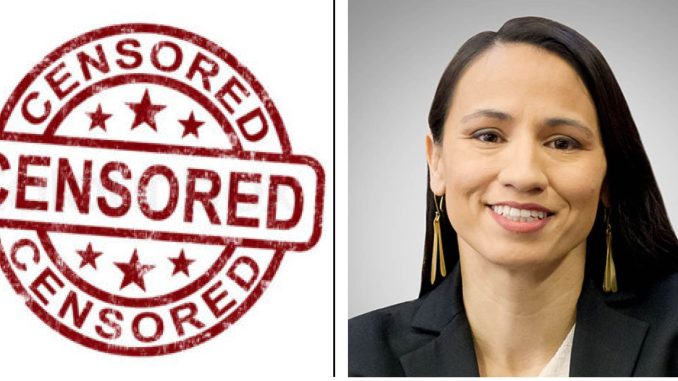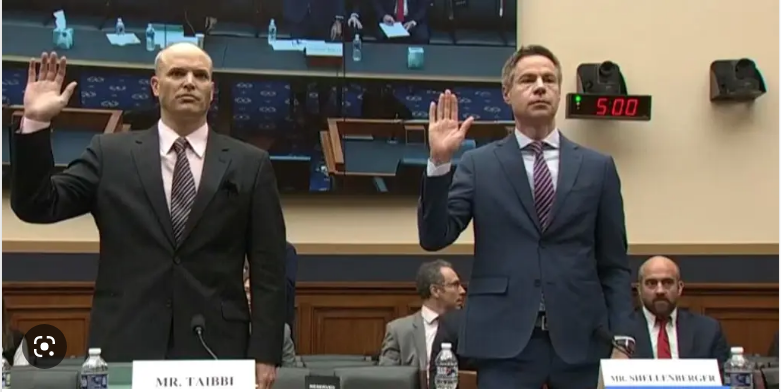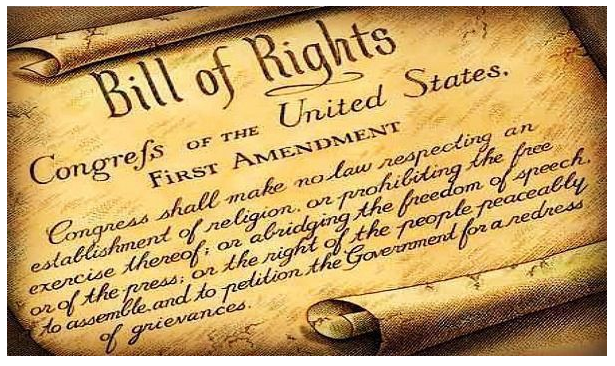
WASHINGTON, D.C. – With recent revelations that elements of the U.S. Government apparently exerted influence on social media platforms to censor speech on topics government officials deemed sensitive, 3rd District Congresswoman Sharice Davids broke with Kansas’ congressional delegation last week to oppose a bill that would make federal employees subject to fines and penalties if they engaged in such censorship.
Davids, a Democrat, represents Anderson, Franklin, Miami, Johnson and part of Wyandotte counties. Republican congressmen Ron Estes (KS4), Tracey Man (KS1) and Jake LaTurner (KS2) all voted in favor of the bill, which passed on party lines 219-206.
The “Protecting Speech from Government Interference Act,” introduced by House Oversight Committee Chairman James Comer (R-Ky.), expands the Hatch Act—the law prohibiting federal employees from engaging in political activities in their official capacity—to expressly prohibit those same federal employees from censoring lawful speech. The bill prohibits agency employees from using their official authority or resources to influence or coerce a private sector platform to censor—including to remove, suppress, restrict, or add disclaimers or alerts to—any lawful speech posted on its platform by a person or entity. It provides an exception for legitimate law enforcement activities reported to Congress for review.

Credible evidence of government censorship discovered in records of the Twitter social media platform resulted in bombshell revelations and came shortly after tech billionaire Elon Musk purchased Twitter last October. Since then, independent journalist Matt Taibbi, to whom Musk provided the Twitter records, has revealed numerous examples of collusion between U.S. Government agencies and the platform.
“With other tech firms it (Twitter) held a regular ‘industry meeting’ with FBI and DHS, and developed a formal system for receiving thousands of content reports from every corner of government: HHS, Treasury, NSA, even local police,” Taibbi told the House Judiciary Subcommittee during his hearing testimony last week. “Emails from the FBI, DHS and other agencies often came with spreadsheets of hundreds or thousands of account names for review. Often, these would be deleted soon after.”
In his testimony, Taibbi referenced one “disinfo” list labeled “Iranian State Linked Accounts” which included an Iraq War veteran, a former Chicago Sun-Times reporter and the progressive news outlet Truthout. Others targeted “anti-Ukraine narratives” last year.
“We came to think of this grouping – state agencies like DHS, FBI, or the Global Engagement Center (GEC), along with ‘NGOs that aren’t academic’ and an unexpectedly aggressive partner, commercial news media – as the Censorship-Industrial Complex,” Taibbi wrote in his testimony.

Davids’ office was contacted for comment regarding her vote but no response was received in time for this publication.
A second Free Speech bill “The Accountability for Government Censorship Act,” introduced by Rep. Scott Perry (R-Pa.), requires a government-wide report to Congress of every instance over the past five years that a federal agency has communicated with an interactive computer service for the purpose of removing, suppressing, restricting, or adding disclaimers to lawful speech. The report will include the agency employees that initiated the communication, the targeted platforms, and a justification of the action. The bill requires agency compliance with the reporting requirement to be audited by the inspectors general. That bill has not yet been referred from the oversight committee.
